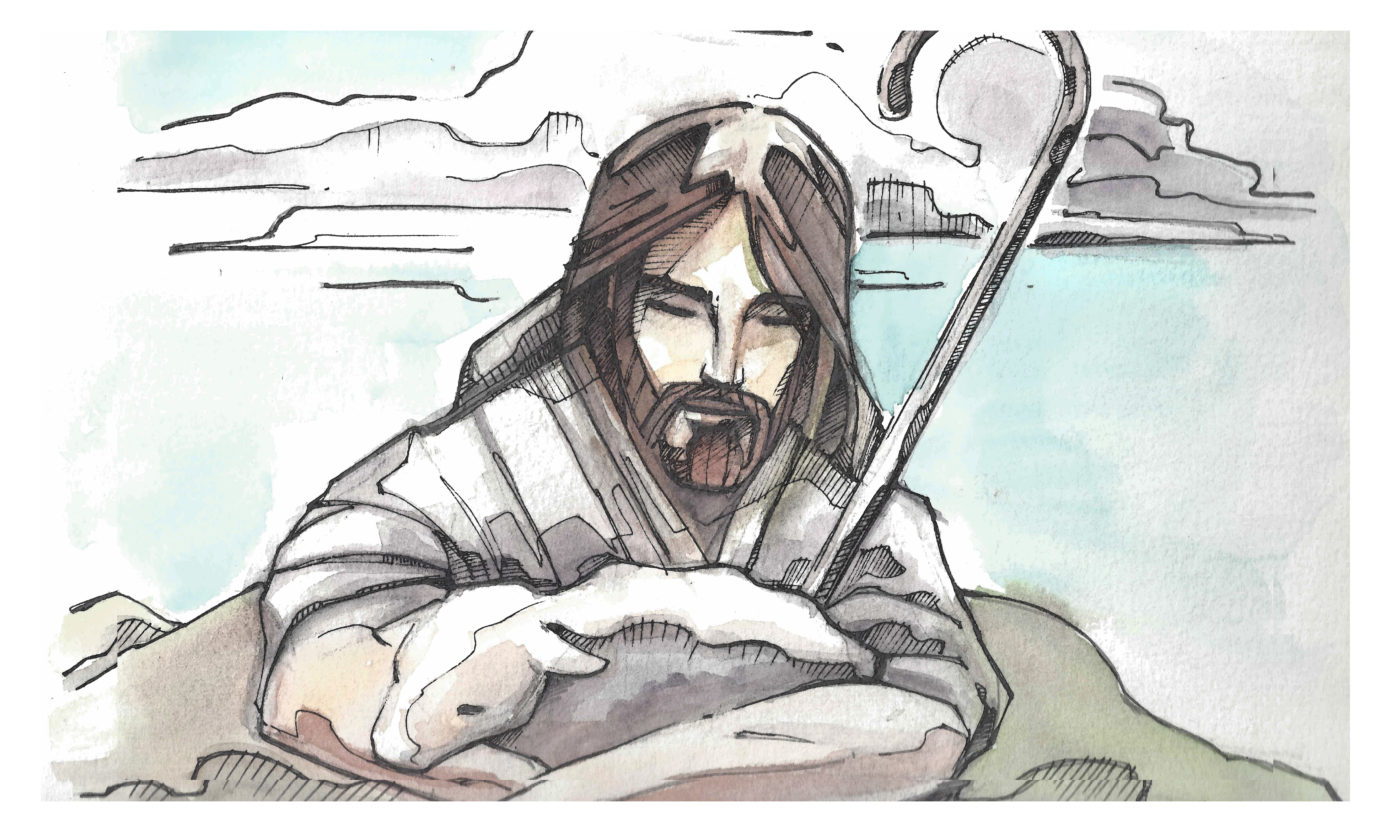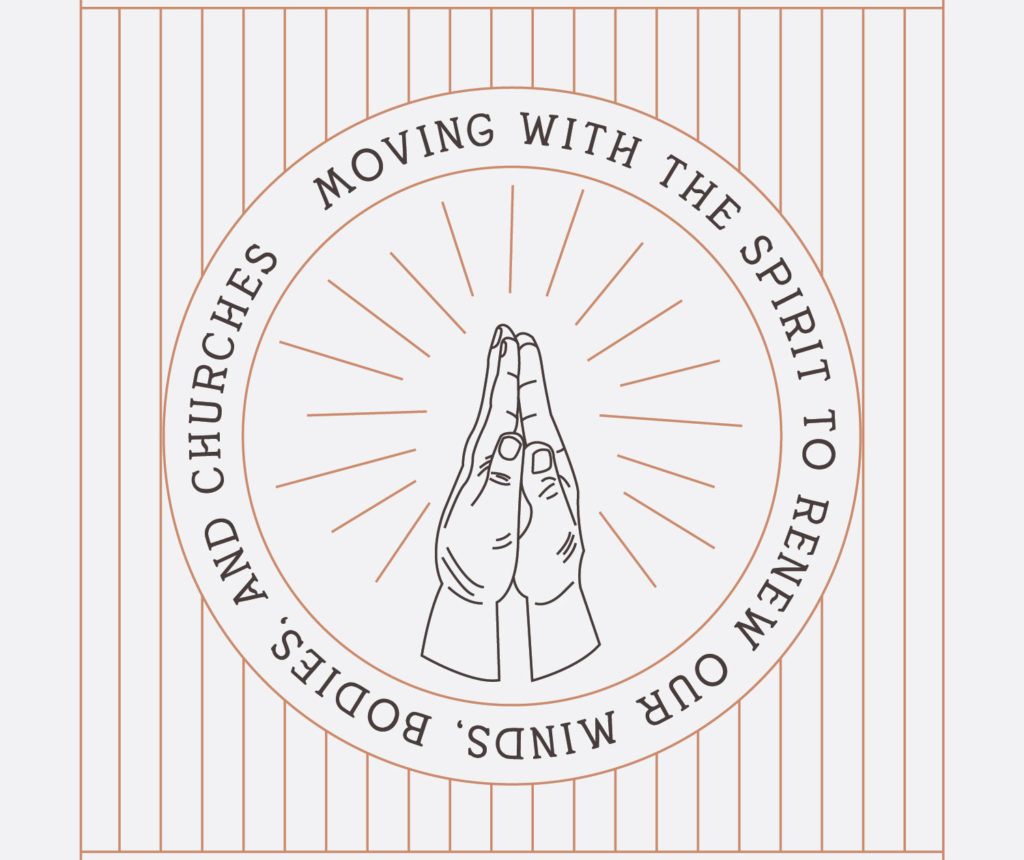
What Psalm 23 Means for Your Relationship with God
We’ve all heard Psalm 23 quoted, but have you ever wondered what Psalm 23 means for your own relationship with God? Here are 3 threads that connect the psalm to your most vital relationship.
From start to finish, the Bible is packed with stories of people who found themselves in situations beyond human aid. Difficulties in their lives were opportunities for them to turn or return to God, as they are for us as well. That much-needed opportunity is one of the many reasons the Bible continues to be relevant for us today in the 21st century and will be until the end of time.
The Word of God is the true “story of stories” that tells how a merciful God moves throughout history to redeem his lost sheep (that’s us). This history includes real people, living in real time and space who struggled just like we do—and who chose to trust and follow God during times of trial, just as we can too. Their stories and ours may vary in detail, but they share common threads. Here are three:
- They find themselves in a situation their own human power cannot resolve.
- They have to trust in God in their hour of need.
- They can trust in God because they have a close, personal relationship with Him.
The book of Psalms is a treasure trove of writings penned in dark trenches, shadowy valleys, barren deserts, and high mountaintop moments. Around half of the psalms were written by David, while additional authors range from the esteemed Moses to psalmists who remain completely anonymous.
“The Psalms range all over the emotional map: joy, sorrow, awe, anger, fear, desperation, despondency, praise, hopefulness.”
The Psalms also range all over the emotional map: joy, sorrow, awe, anger, fear, desperation, despondency, praise, hopefulness. Psalm 23 is a psalm of David and one of the most well-known psalms because it is a psalm of security, comfort, and hope often read at times of sorrow and death. Let’s dive into this psalm and mine some gold as we unpack our three common threads.
1. David found himself in a situation his own human power could not resolve.
We don’t know at what point in his life that David wrote Psalm 23, but there are indicators that it was a desperate situation of some kind. He mentions walking through the darkest valley (“I walk through the darkest valley,” 23:4) and having enemies (“You prepare a table before me in the presence of my enemies,” 23:5). As an example, this could fit when David was literally living in the wilderness and running for his life from his king, even though he proved over and over to be the king’s most loyal subject.
In a desperate situation, David’s mind returned to something he knew well: shepherding. The first verse of the psalm is, “The Lord is my shepherd, I lack nothing.” His job on his father’s farm had been as shepherd, a keeper of sheep. He knew and performed his job well, knowing both the gentle care of the flock as well as the courage and skill to defend the sheep from attackers such as lions and bears. Now, David found himself in the role of a sheep needing protection.
2. David had to completely rely on and trust in God alone in his hour of need.
Being in difficult situations is humbling, and rather than resist the feeling, David goes all in with his reliance on God. Psalm 23 shows us how situations in which we feel powerless can be good things, as they give us opportunities to trust God as the one who
- leads us: “He leads me beside quiet waters” (23:2)
- refreshes us: “He refreshes my soul” (23:3a)
- guides us: “He guides me along the right paths” (23:3b)
- stays with us: “Even though I walk through the darkest valley, I will fear no evil, for you are with me” (23:4a)
- comforts us: “Your rod and your staff, they comfort me” (23:4b)
David is forced to depend upon God entirely to restore his soul and lead him safely to rest in green pastures and walk beside still waters. Have you ever found yourself in such a situation, needing to trust in God as your shepherd?
I encourage you to think about the times in David’s life when he was at his best. Confronting a fearsome warrior (Goliath) whom no one else would dare face. Refusing to kill the king who was mercilessly hunting him. Humbling himself before the prophet who tells him to repent of the sins he thought he’d gotten away with. Each moment of David’s success comes back to his clarity that the Lord is the shepherd.
“Each moment of David’s success comes back to his clarity that the Lord is the shepherd.”
Regarding Goliath, David explained, “The Lord who rescued me from the paw of the lion and the paw of the bear will rescue me from the hand of this Philistine” (1 Sam. 17:37). Regarding the king trying to kill him, David reasoned, “The Lord forbid that I should lay a hand on the Lord’s anointed” (1 Sam. 26:11). Regarding the prophet’s message that David needed to repent of his sins, he responded by saying, “I have sinned against the Lord” (2 Sam. 12:13). He was even willing to put being king on hold, never rushing the process or trying to seize the throne because he knew he would become king when God decided the time was right.
He knew that God’s rod and staff, tools shepherds had on hand to protect their flocks from harm, would protect him. What he and other faithful followers of God throughout history understood at a heart level was that if we trust the unknown future to a known God in both good and bad times, his power can and will be made manifest in our weakness.
3. David could trust in God because he had a close, personal relationship with him.
In his best moments, David had no doubt who was in charge: the Good Shepherd. It was God who anointed David’s head with oil to designate his kingship (23:5). It was God who would protect and guide him from harm (23:4). It was God who would lift him up and honor him in the face of all of his enemies when the time was right (23:5). And this wasn’t just a head-level, theoretical trust in God. As his psalms demonstrate over and over, David personally knew God at a heart level. Far from perfect, David was nonetheless a “man after [God’s] own heart” (1 Sam. 13:14).
The last lines of the psalm confirm his close, intimate relationship with God. He knew he could trust God and that God had good in mind for him despite the circumstances in which he found himself. I have a video of our seven-year-old granddaughter reciting Psalm 23. In it, she says emphatically, “Surely goodness and mercy shall follow me ALL the days of my life.” She is spot on. All the days. Even when we can’t see it or feel it, God’s mercy follows us.
“Surely your goodness and love will follow me all the days of my life, and I will dwell in the house of the LORD forever.”
David makes a conscious choice here. He chooses to dwell in God’s house, with God. Not just when things are going well, when the sun is shining and nothing hurts. But in the shadow-filled valleys and worst times of his life, he will live in the conviction that the Lord is his Shepherd.
How about you? Will you choose Jesus as your Shepherd and to dwell in his house all the days of your life?
(From Transformation Fitness. Used with permission.)









